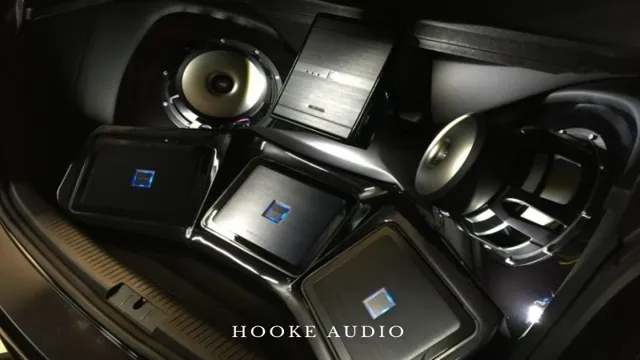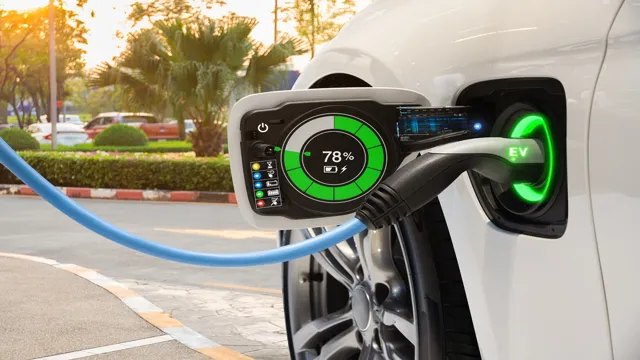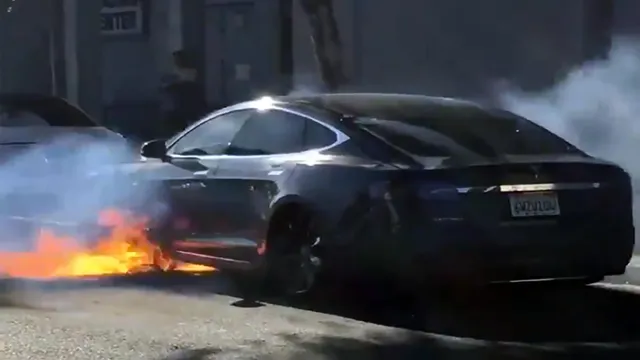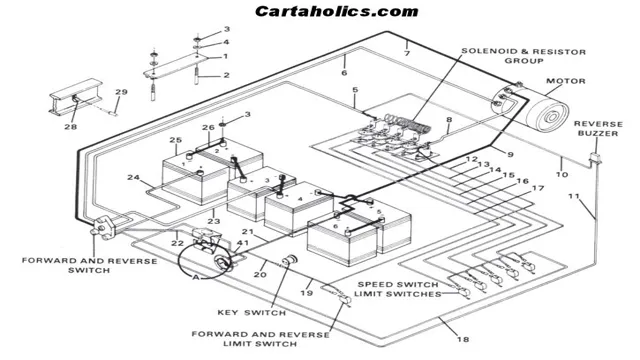Cold Weather Woes: How Winter Has Become a Threat to Your Electric Car Battery
Electric cars are becoming an increasingly popular choice for drivers, but what happens when they are faced with cold weather conditions? With the rise of electric vehicles (EVs), many are concerned about how these cars will perform in the winter weather, especially when it comes to battery life. While EVs offer many benefits, such as reduced emissions and fuel costs, they do come with unique challenges, particularly in cold weather. In this blog post, we will examine what’s at stake when electric cars are put to the test in icy conditions and explore some of the solutions that are currently being developed.
So, if you’re considering an electric car and you live in a region with cold winters, keep reading to find out what you can expect.
The impact of cold weather on EV batteries
The cold weather poses a significant threat to electric car batteries, causing performance issues and reducing their overall range. When the temperature drops below freezing, it can slow down the chemical reactions that take place in the battery, which in turn reduces the output of power to the electric motor. Additionally, the batteries themselves can become less efficient, meaning that they may not hold their charge as well in the cold.
This can further reduce the range of an electric car, making it less practical for longer journeys. To combat this issue, some manufacturers are developing new technologies to improve battery efficiency in colder climates, such as better insulation and more efficient heating systems. Nonetheless, it remains important for EV owners to be aware of the potential impact of cold weather on their vehicles and plan for it accordingly.
Lower temperature leads to reduced battery capacity
Electric vehicles have become increasingly popular due to their environmental friendliness and long-term cost savings. However, EV owners have reported a decrease in battery capacity during the winter months. Cold weather can have a significant impact on battery performance, causing a reduction in range and overall efficiency.
When the temperature drops, the chemical reactions within the battery slow down, reducing its ability to hold a charge. Additionally, EV owners may find that their heating systems use more electricity to warm the cabin, further draining the battery. To overcome this issue, manufacturers have developed battery heating systems to keep batteries at an optimal temperature.
EV owners can also take precautionary steps, such as parking their vehicles in a garage or using a battery blanket, to maintain battery capacity. Overall, while cold weather may have an impact on EV batteries, it’s important to note that modern EVs are designed to operate in a range of weather conditions.

Cold weather hampers the performance of EV batteries
As temperatures drop, the performance of electric vehicle (EV) batteries can be hampered, presenting a challenge for EV owners. The cold weather can slow the chemical reactions inside the battery, reducing its ability to produce and store energy. As a result, the range of the vehicle can be reduced, and it may take longer to charge the battery.
This issue is caused by the fact that most EV batteries operate within a narrow temperature range, making them susceptible to the effects of cold weather. However, manufacturers are working to improve the resilience of batteries in cold temperatures by developing battery systems that can maintain their efficiency even in freezing conditions. As the popularity of EVs continues to grow, overcoming the challenges of cold weather will be critical to ensuring their success in the future.
What can EV users do to minimize the impact?
When it comes to the cold weather threat to electric car batteries, there are a few steps that EV users can take to minimize the impact. First and foremost, EV owners should be mindful of their battery levels and try to keep them above 20%. This is especially important during the colder months when the battery may drain faster.
Additionally, preheating the car while it is still plugged in can reduce the amount of energy used from the battery. EV owners can also consider using seat heaters instead of turning up the heat, which can drain the battery faster. It is also recommended to park the car in a garage or covered area to keep it out of the cold and reduce the strain on the battery.
By taking these simple steps, EV owners can ensure that their car battery stays healthy and functional, even in cold weather.
Preheat the battery before driving
EV users can take several actions to minimize the impact of cold weather on battery life. One of the most effective ways is to preheat the battery before driving. Since cold temperatures slow down the chemical reactions inside the battery, preheating helps the battery perform optimally.
This can be achieved by plugging in the car’s battery charger and using the temperature control system to warm the battery up to a comfortable temperature range. This method can dramatically improve the battery performance in cold weather conditions and offer better range and energy efficiency, making it an essential practice for EV owners. In summary, preheating your battery is a practical and efficient way to maximize your EV’s range and improve its efficiency during colder temperatures.
Use battery thermal management systems
As electric vehicles (EVs) continue to gain popularity, it’s important to consider ways to minimize their impact on the environment. One way EV users can do this is by utilizing battery thermal management systems. These systems help regulate the temperature of the battery, which in turn can extend its lifespan and improve performance.
By keeping the battery cool during hot weather and warm during cold weather, EV users can increase the efficiency of their vehicles and reduce the amount of energy needed to power them. Battery thermal management systems are becoming increasingly common in newer EV models, but older models can also benefit from retrofitting. Investing in this technology is a simple but effective way to make a positive impact on the environment.
Install a garage heater for better battery performance
Electric vehicle (EV) users often face reduced battery performance during colder seasons. Fortunately, there are a few steps you can take to mitigate this issue. One helpful solution is to install a garage heater.
When you park your vehicle in a comfortably warm space, your battery will stay warm, and you’ll benefit from better performance when you hit the road again. By maintaining a consistent temperature for your EV, you can ensure that you always have a reliable and efficient source of transportation. Moreover, using a garage heater is eco-friendly, as it allows you to warm your personal space without relying on fossil fuels.
Overall, a garage heater is a simple and effective way to get the most out of your electric vehicle while also minimizing your carbon footprint.
The future of EV batteries in cold weather scenarios
The cold weather poses a potential threat to electric car batteries, affecting their performance and lifespan. When temperatures drop, the chemical reactions that take place in the battery slow down, leading to decreased efficiency and loss of range. Additionally, extreme weather conditions such as snow and ice can make it difficult to charge the car and even damage the battery.
However, manufacturers are already working on solutions. Some EV batteries now come with thermal management systems that regulate the temperature and keep it within a suitable range. Moreover, several research initiatives are exploring new materials that can make batteries more resilient to colder temperatures.
Despite these advancements, it is still advisable to preheat your car battery before using it in below-zero weather conditions. In the future, it is likely that EV batteries will become even more robust, making them an attractive option for drivers in any climate.
Technological advancements to improve battery performance in cold weather
As environmentally friendly transportation alternatives gain widespread acceptance, concerns regarding their use in extreme weather conditions are becoming a hot topic of discussion. Electric vehicles, in particular, suffer from significant battery capacity losses in cold weather conditions. This dilemma, however, is slowly being addressed with the introduction of new technological advancements that improve battery performance in chilly temperatures.
One such advancement is the implementation of battery heating systems, which use electricity to heat the battery. Another approach involves the use of solid-state batteries, which offer high energy and power density and better temperature performance than conventional lithium-ion batteries. These advancements ensure that EV battery performance remains optimal in below-freezing temperatures, making them more reliable and practical in cold weather scenarios.
The future of EV batteries in cold weather is bright, and with continued research, improvements, and innovations, they will become efficient and reliable transportation alternatives for colder environments.
Collaboration between automakers and governments to address the issue
Collaboration between automakers and governments is paramount to address the issue of EV batteries in cold weather scenarios. This partnership is essential to ensure that EVs can perform optimally in all kinds of weather conditions, especially in areas that experience harsh winter seasons. The harsh conditions of cold weather can significantly affect the performance of EV batteries, causing them to lose their effectiveness and capacity.
There must be efforts to develop innovative solutions that can address these challenges and enable the widespread adoption of EVs. Automakers and governments can work together to develop technologies that increase battery efficiency and reduce range anxiety in cold weather scenarios. This collaboration can lead to the development of innovative solutions that enhance the overall performance of EVs, especially in areas with challenging weather conditions.
By working together, automakers and governments can take significant strides towards a more sustainable and environmentally friendly future.
Conclusion: EVs are still a viable option in cold weather conditions
In conclusion, while it may seem like cold weather poses a threat to electric car batteries, it’s important to remember that these vehicles are resilient and designed to withstand a range of conditions. With a little planning and preparation, electric car owners can continue to enjoy their rides even in the coldest of climates. And who knows, maybe one day, with advancements in battery technology, winter weather won’t pose a threat to electric cars at all.
After all, it’s not called “research and development” for nothing!”
FAQs
How does cold weather affect the performance of electric car batteries?
Cold weather can decrease the efficiency of electric car batteries as it reduces the speed of chemical reactions inside them, leading to a shorter driving range and longer charging times.
Can electric car batteries freeze in extremely cold weather?
Yes, electric car batteries contain electrolytic solutions that can freeze in extremely cold temperatures, rendering the battery useless until thawed.
What measures can electric car owners take to protect their batteries in cold weather?
Electric car owners can park their vehicles in a garage or covered area, use battery blankets or heaters, and reduce the use of battery-draining components like seat warmers and headlights.
Does warm weather also have an impact on electric car batteries?
Yes, extreme heat can also affect the durability of electric car batteries, shortening their lifespan and reducing their energy storage capacity over time. Proper temperature regulation is crucial for maintaining healthy battery performance.





